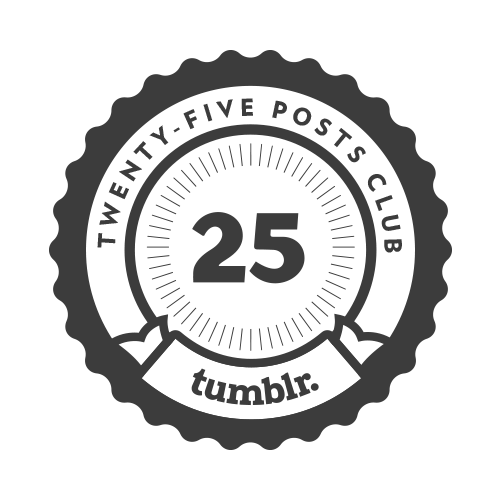Hi everyone.. I'm a Researcher who interesting on the political issues. I'm doing master on International Relations and Political Science at University of Indonesia. Please don't hesitate to contact me through this. I'm also the owner of Warung Data IT...
74 posts
Latest Posts by nofiafitri - Page 2
LEPI mu Udah Keren Belum?
Sebagai pengguna Dell XPS yang handy, touchscreen, bisa dilipat-lipat, ditekuk-tekuk, bolak-balik ampe gempor, cukuplah sudah gengsiku ke suami yang setia dengan MacBook. :D
Karena teknologi akan selalu bersaing, mereka akan terus bermanuver, beruntungnya produk-produk si Apel memang lebih sering jadi juara (y).
Tapi, semaju-majunya teknologi, kalau pemakainya bukan user kreatif ya percuma juga. Kalau kata misua ke aku, percuma lepimu keren, kalau cuma buat ngetik doang... Hahaha gayanya doi :D Jadi ini laptop keren sudah saatnya dipakai exploit kek nyaa..
https://tirto.id/usaha-mengalahkan-gengsi-macbook-cpxA
Do yourself a favor. Learn to code. Here's how.
I’ve said this to my non-techie friends countless times. It’s no secret that being able to code makes you a better job applicant, and a better entrepreneur. Hell, one techie taught a homeless man to code and now that man is making his first mobile application.
Learning to code elevates your professional life, and makes you more knowledgeable about the massive changes taking place in the technology sector that are poised to have an immense influence on human life.
(note: yes I realize that 3/5 of those links were Google projects)
But most folks are intimidated by coding. And it does seem intimidating at first. But peel away the obscurity and the difficulty, and you start to learn that coding, at least at its basic level, is a very manageable, learnable skill.
There are a lot of resources out there to teach you. I’ve found a couple to be particularly successful. Here’s my list of resources for learning to code, sorted by difficulty:
Novice
Never written a line of code before? No worries. Just visit one of these fine resources and follow their high-level tutorials. You won’t get into the nitty-gritty, but don’t worry about it for now:
Dash - by General Assembly
CodeAcademy
w3 Tutorials (start at HTML on the left sidebar and work your way down)
Intermediate
Now that you’ve gone through a handful of basic tutorials, it’s time to learn the fundamentals of actual, real-life coding problems. I’ve found these resources to be solid:
Khan Academy
CodeAcademy - Ruby, Python, PHP
Difficult
If you’re here, you’re capable of building things. You know the primitives. You know the logic control statements. You’re ready to start making real stuff take shape. Here are some different types of resources to turn you from someone who knows how to code, into a full-fledged programmer.
Programming problems
Sometimes, the challenges in programming aren’t how to make a language do a task, but just how to do the task in general. Like how to find an item in a very large, sorted list, without checking each element. Here are some resources for those types of problems
Talentbuddy
TopCoder
Web Applications
If you learned Python, Django is an amazing platform for creating quick-and-easy web applications. I’d highly suggest the tutorial - it’s one of the best I’ve ever used, and you have a web app up and running in less than an hour.
Django Tutorial
I’ve never used Rails, but it’s a very popular and powerful framework for creating web applications using Ruby. I’d suggest going through their guide to start getting down-and-dirty with Rails development.
Rails Guide
If you know PHP, there’s an ocean of good stuff out there for you to learn how to make a full-fledged web application. Frameworks do a lot of work for you, and provide quick and easy guides to get up and running. I’d suggest the following:
Cake PHP Book
Symfony 2 - Get Started
Yii PHP - The Comprehensive Guide
Conclusion
If there’s one point I wanted to get across, it’s that it is easier than ever to learn to code. There are resources on every corner of the internet for potential programmers, and the benefits of learning even just the basics are monumental.
If you know of any additional, great resources that aren’t listed here, please feel free to tweet them to me @boomeyer.
Best of luck!
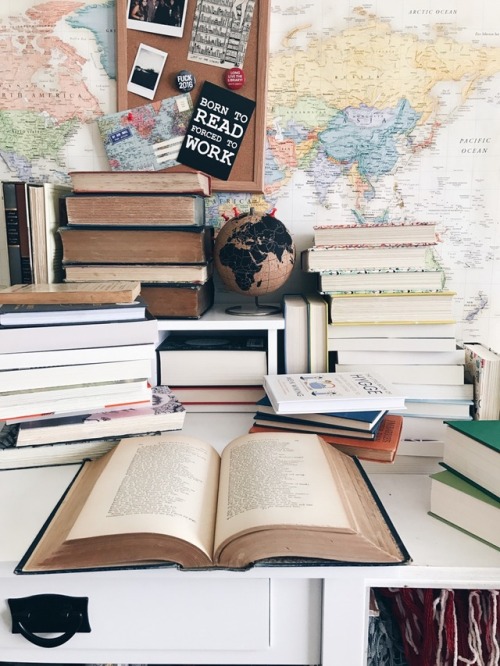
Born to read forced to work = Story of my life 📚
one universal truth: no matter what language you are learning, no matter your native language, prepositions are a bitch
If you need some sources, please dont hesitate! ;)

Do you have any tips for studying politics? Specifically political essays?
Hey!
How to Study
How to Write a Politics Essay
Example Essays
Writing Essays for Politics
Guidelines for Writing a Politics Essay
Such a paradise!

love this captured!

HOW TO WRITE A STRONG ESSAY
I recently got an ask about how to write an introductory paragraph for an essay so I thought I’d do a post about how to write a good essay.
** Important Points ** For essays in high school, use third person unless the teacher specifically tells you not too. It’s more academic and professional while first person sounds really informal. I’ve heard that in college it’s different but again, it depends on the class. Stay on the safe side and use third person unless otherwise specified. Also, try to be as sophisticated and mature as you can. This makes the essay sound smarter and makes it easier to read.
1) INTRODUCTION
Try to think of an upside down pyramid here. You start off broad and end off tapered to a point (specific). The formula for writing a good intro is this: hook, background info, introduce topic of discussion, and thesis. In the pyramid example, the hook is the broad and the thesis is the narrow. The intro is usually around 8 sentences long.
Hook: Unlike what you’ve probably been told through out high school, the hook is not necessarily a wow statement. It’s typically a broad idea that relates to the topic of discussion. I usually use historical facts or common wisdom and go from there. I then follow it up with a sentence that elaborates on my hook and a sentence that connects my hook with the background info.
Background Info: Here you give the reader some context as to what you will be discussing in your essay. It sets the scene for the topic you’re discussing. Try to be concise.
Introduce the Topic of Discussion: Here you give a brief summary of the points you’re arguing/discussing. It should be one sentence per body paragraph and again, be clear and concise and avoid merely summarizing the plot. This part should cover the gist of your ideas.
Thesis: This should be a longer complex sentence that summarizes your point of view and ideas. This is one of the most important parts of the essay so crafting a good thesis is crucial.
I did a more detailed post about the introduction with an example introduction paragraph HERE.
2) BODY PARAGRAPHS
The meat of your essay. Here is where you state your arguments and defend them with supporting evidence from literature, articles, or even your personal experience. I would generally limit one argument per body paragraph. Which reminds me, most likely you have been taught the canned five paragraph essay. Some people write all their essays in five paragraph format because they thing that is the only way to go. Really, you can do four+ body paragraphs with the common numbers being four and six. It depends on the essay. When writing your body paragraph you need this structure: topic sentence, three points, three examples of supporting evidence, conclusion. Body paragraphs typically fall between 8 -15 sentences.
Topic Sentence: This is similar to a thesis. Here you’re stating the argument that you are proving in a clear and concise sentence.
Three Points: There’s a rule of thumb that you generally want to have three points about each argument and have a piece of supporting evidence for each point. I’m going to start with the three points first. Basically, you want three ideas about your argument that show why it’s valid. For example if you’re trying to argue that cheese is dairy, your three points are it’s made of milk, it’s featured in the dairy section of the grocery store, and the FDA labels it as dairy.
Three Examples of Supporting Evidence: These are usually quotes from other sources or the piece of literature you’re analyzing that support the three points of your argument. To use the really bad cheese example from above, for the milk point you’d use an ingredients label from a package of cheese, for the grocery store point you’d get a sheet with the department labels and the produce in those departments, and for the FDA point you’d find a quote from their website.
Conclusion: This is a sentence or two that wraps up your body paragraph. It should briefly summarize the points you discussed or the topic sentence and help transition into the next paragraph.
2) a. COUNTER ARGUMENT PARAGRAPHS
This paragraph is NOT necessary for most essays. However, some do require them so it’s important to know how to approach them. Depending on whom you ask, they’ll either tell you that the counter argument paragraph goes in the middle of your body paragraphs, or at the end. Personally I prefer the end but the middle is more correct. Placing it in the middle allows you to end on a strong note but I think it’s a matter of personal preference. The counter argument is used to present an opposing view point and say why it’s wrong. This can strengthen your argument if it’s done properly but ruin it if it’s done wrong so tread carefully. The only thing different from the body paragraph structure is the topic sentence.
Topic Sentence: Here you need a specific template to start the paragraph properly. I usually use: It may be argued that _______________ but there is sufficient evidence to show that _______________. The first blank is filled with the opposing argument and the last blank is your argument. There are different ways to structure this sentence but this is the one I use.
The rest of the paragraph is the same as the body paragraph: you get three points as to why the counter argument is wrong and three points to support it. Then you end with a typical concluding sentence.
3) CONCLUSION
This is where you wrap up your arguments and finish strong. It has three components: a restatement of your thesis, summary of your arguments, and general statement to wrap it up. Think of the right side up pyramid this time. The pointy end is the thesis and the bottom is the general statement that closes your essay. A conclusion is typically 5 sentences long.
Restatement of Thesis: This is pretty self explanatory; you restate the thesis using different language than you used in your intro.
Summary of Arguments: Here you briefly touch upon the arguments you covered in your essay. Again, clear and concise, and whatever you do, DO NOT introduce new information. It can ruin the amazing essay you worked so hard on.
General Statement: A general statement is a broad idea that you use to tie your entire essay together. It’s kind of like the hook but should be more relevant to your essay.
And that is how you write a killer essay. I use this technique whenever I write and it has never failed me. Hopefully if will help you improve your writing! If you have any questions, feel free to hit up my ask box.
French flag being projected all over the world and facebook makes a French flag DP filter. I wonder why FB never created a Palestinian flag filter where hundreds die each month? Or maybe a Syrian, Iraqi or Afghan flag? A Pakistani flag after 16th Dec APS attack? Its exactly this “Selective” Humanity and Imperialistic mindset which leads to hatred towards the west. I condemn Paris attack but i also condemn the hypocrisy of western imperial mindset. - Hamza Ali Abbasi
"Kau mungkin bisa menutup mulutku, menghentikan aksiku, bahkan memenjarakan aku, tapi kau tidak akan pernah bisa menghentikan kekuatan IDE, karena 'FIKIRAN' ku dapat merubah DUNIA meski dibawah ancaman mu!"
(Bunga Mataharry)
I need this! Indeed 😍

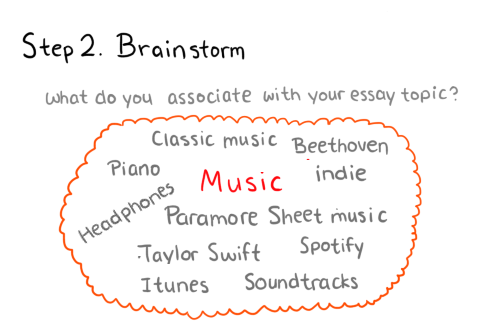

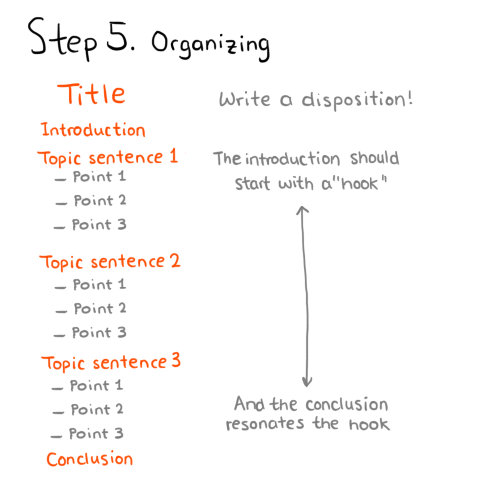
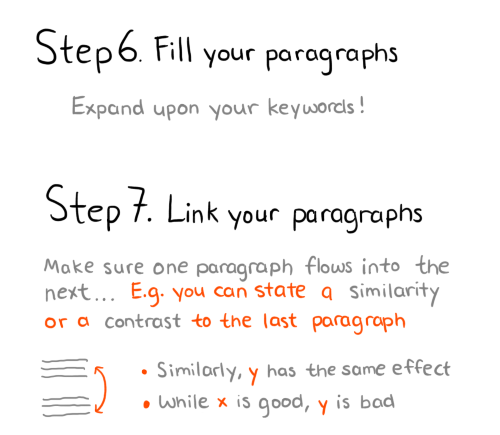


Ten steps to writing an essay //Science Scribbles
Awesome Sites and Links for Writers
ghostflowerdreams:
Just about every writer out there has several go-to websites that they use when it comes to their writing. Be it for creativity, writer’s block, to put you in the mood or general writing help. These are mine and I listed them in hopes that you’ll find something that you’ll like or will find something useful for you. I’ve also included some websites that sound interesting.
Spelling & Grammar
Grammar Girl — Grammar Girl’s famous Quick and Dirty Tips (delivered via blog or podcast) will help you keep your creative writing error free.
The Owl — is Purdue University’s Online Writing Lab (OWL) it’s a great resource for grammar guides, style tips and other information that can help with your writing, especially academics.
Tip of My Tongue — have you ever had trouble of thinking of a specific word that you can’t remember what it is? Well, this site will help you narrow down your thoughts and find that word you’ve been looking for. It can be extremely frustrating when you have to stop writing because you get a stuck on a word, so this should help cut that down.
Free Rice – is a great way to test your vocabulary knowledge. What’s even better about this site is that with every correct answer, they donate 10 grains of rice to the United Nations World Food Program. So, please disable your adblock since they use the ads on the site to generate the money to buy the rice.
HyperGrammar — the University of Ottawa offers up a one-stop guide for proper spelling, structure, and punctuation on this site.
AutoCrit — the AutoCrit Editing Wizard can check writing for grammar errors, clichés and other no-no’s. It also provides a number of other writing resources as well.
Writer’s Digest — learn how to improve your writing, find an agent, and even get published with the help of the varied blogs on this site.
Syntaxis — it allows you to test your knowledge of grammar with a ten-question quiz. The questions change every time you take the quiz so users are sure to be challenged each time around. It definitely helps writers know if there’s something that they need to brush up on.
Word Frequency Counter — this counter allows you to count the frequency usage of each word in your text.
Tools
Copyscape — is a free service that you can use to learn if anyone has plagiarized your work. It’s pretty useful for those that want to check for fanfiction plagiarism.
Write or Die — is an application for Windows, Mac and Linux which aims to eliminate writer’s block by providing consequences for procrastination.
Written? Kitten! — is just like Write of Die, but it’s a kinder version. They use positive reinforcement, so everytime you reach a goal they reward you with an adorable picture of a kitten.
Information & Data
RefDesk — it has an enormous collection of reference materials, searchable databases and other great resources that can’t be found anywhere else. It’s great to use when you need to find something and check your facts.
Bib Me — it makes it easy to create citations, build bibliographies and acknowledge other people’s work. This is definitely something that academics will love. It’s basically a bibliography generator that automatically fills in a works cited page in MLA, APA, Chicago or Turbian formats.
Internet Public Library — this online library is full of resources that are free for anyone to use, from newspaper and magazine articles to special collections.
The Library of Congress — if you’re looking for primary documents and information, the Library of Congress is a great place to start. It has millions of items in its archives, many of which are accessible right from the website.
Social Security Administration: Popular Baby Names — is the most accurate list of popular names from 1879 to the present. If your character is from America and you need a name for them, this gives you a accurate list of names, just pick the state or decade that your character is from.
WebMD — is a handy medical database loaded with information. It’s not a substitute for a doctor, but can give you a lot of good information on diseases, symptoms, treatments, etc.
Google Scholar - is an online, freely accessible search engine that lets users look for both physical and digital copies of articles. It searches a wide variety of sources, including academic publishers, universities, and preprint depositories and so on. While Google Scholar does search for print and online scholarly information, it is important to understand that the resource is not a database.
The Old Farmer’s Almanac — this classic almanac offers yearly information on astronomical events, weather conditions and forecasts, recipes, and gardening tips.
State Health Facts — Kaiser Family Foundation provides this database, full of health facts on a state-by-state basis that address everything from medicare to women’s health.
U.S. Census Bureau — Learn more about the trends and demographics of America with information drawn from the Census Bureau’s online site.
Wikipedia — this shouldn’t be used as your sole source, but it can be a great way to get basic information and find out where to look for additional references.
Finding Data on the Internet — a great site that list links that can tell you where you can find the inflation rate, crime statistics, and other data.
Word References
RhymeZone — whether you’re writing poetry, songs, or something else entirely, you can get help rhyming words with this site.
Acronym Finder — with more than 565,000 human-edited entries, Acronym Finder is the world’s largest and most comprehensive dictionary of acronyms, abbreviations, and initials.
Symbols.com — is a unique online encyclopedia that contains everything about symbols, signs, flags and glyphs arranged by categories such as culture, country, religion, and more.
OneLook Reverse Dictionary — is a dictionary that lets you describe a concept and get back a list of words and phrases related to that concept. Your description can be a few words, a sentence, a question, or even just a single word.
The Alternative Dictionaries — is a site that you can look up slang words in all types of languages, including Egyptian Arabic, Cherokee, Cantonese, Norwegian and many, many others.
Online Etymology Dictionary — it gives you the history and derivation of any word. Etymologies are not definitions; they’re explanations of what our words meant and how they sounded 600 or 2,000 years ago.
MediLexicon — is a comprehensive dictionary of medical, pharmaceutical, biomedical, and health care abbreviations and acronyms.
Merriam Webster Online – the online version of the classic dictionary also provides a thesaurus and a medical dictionary.
Multilingual Dictionary – that translate whatever you need from 30 different languages with this easy-to-use site.
Writing Software
Open Office — why pay for Microsoft products when you can create free documents with Open Office? This open source software provides similar tools to the Microsoft Office Suite, including spreadsheets, a word processor, the ability to create multimedia presentations, and more.
LibreOffice — is a free and open source office suite. It was forked from OpenOffice.org in 2010, which was an open-sourced version of the earlier StarOffice. The LibreOffice suite comprises programs to do word processing, spreadsheets, slideshows, diagrams and drawings, maintain databases, and compose math formula.
Scrivener — is not a free program, but it’s certainly a very popular one. It’s great for organizing research, planning drafts, and writing novels, articles, short stories, and even screenplays.
OmmWriter — is a free simple text processor that gives you a distraction free environment. So you can focus only on your writing without being tempted or distracted by other programs on your computer.
Evernote — is a free app for your smartphone and computer that stores everything you could possibly imagine losing track of, like a boarding pass, receipt, article you want to read, to do list, or even a simple typed note. The app works brilliantly, keeping everything in sync between your computer, smartphone, or tablet. It’s definitely a useful app for writers when you have ideas on the go.
Storybook — this open source software can make it easier to manage your plotlines, characters, data, and other critical information while penning a novel.
Script Frenzy — scriptwriters will appreciate this software. It offers an easy layout that helps outline plots as well as providing storyboard features, index cards, and even sound and photo integration.
Creativity, Fun & Miscellaneous
National Novel Writing Month — is one of the most well-known writing challenges in the writing community, National Novel Writing Month pushes you to write 50,000 words in 30 days (for the whole month of November).
WritingFix — a fun site that creates writing prompts on the spot. The site currently has several options—prompts for right-brained people, for left-brained people, for kids—and is working to add prompts on classic literature, music and more.
Creative Writing Prompts — the site is exactly what it says. They have 100+ and more, of prompts that you can choose from.
My Fonts — is the world’s largest collection of fonts. You can even upload an image containing a font that you like, and this tells you what it is.
Story Starters — this website offers over one trillion randomly generated story starters for creative writers.
The Gutenberg Project — this site is perfect for those who like to read and/or have an ereader. There’s over 33,000 ebooks you can download for free.
The Imagination Prompt Generator — Click through the prompts to generate different ideas in response to questions like “Is there a God?” and “If your tears could speak to you, what would they say?”
The Phrase Finder – this handy site helps you hunt down famous phrases, along with their origins. It also offers a phrase thesaurus that can help you create headlines, lyrics, and much more.
Storybird – this site allows you to write a picture book. They provided the gorgeous artwork and you create the story for it, or just read the stories that others have created.
Language Is a Virus — the automatic prompt generator on this site can provide writers with an endless number of creative writing prompts. Other resources include writing exercises and information on dozens of different authors.
Background Noise/Music
SimplyNoise — a free white noise sounds that you can use to drown out everything around you and help you focus on your writing.
Rainy Mood — from the same founders of Simply Noise, this website offers the pleasant sound of rain and thunderstorms. There’s a slide volume control, which you can increase the intensity of the noise (gentle shower to heavy storm), thunder mode (often, few, rare), oscillation button, and a sleep timer.
Coffitivity — a site that provides three background noises: Morning Murmur (a gentle hum), Lunchtime Lounge (bustling chatter), and University Undertones (campus cafe). A pause button is provided whenever you need a bladder break, and a sliding volume control to give you the freedom to find the perfect level for your needs and moods. It’s also available as an android app, iOS app, and for Mac desktop.
Rainy Cafe — it provides background chatter in coffee shops (similar to Coffitivity) AND the sound of rain (similar to Simply Rain). There’s also individual volume and on/off control for each sound category.
8tracks — is an internet radio website and everyone can listen for free. Unlike other music oriented social network such as Pandora or Spotify, 8tracks does’t have commercial interruption. Users create free accounts and can either browse the site and listen to other user-created mixes, and/or they can create their own mixes. It’s a perfect place to listen to other writer’s playlist, share yours or find music for specific characters or moods.

Hello moodbooster!!!

When my study room moves to my dinning room 😍 .. Xoxoxo hellcome my examination, what a perfect pregnancy life with several paper submissions.. #studentlife #UniversityofIndonesia #pregnantstudent#mommyslife #bigbelly
Love it!!!!
back-to-school reminders
spend a lot of time figuring out and setting up an organization system that works for you. it seems boring, but it’s going to help you so much!
explore new things, but don’t overextend yourself and end up exhausted.
eight hours of sleep sounds like a lofty goal during the year, but make it your priority to get as close to that as you can. your body’s going to thank you!
stay on top of your assignments. spending your night doing homework might not be ideal, but do you really want to spend your weekend catching up on the reading you were supposed to be doing all week?
write down everything you have to do. never rely on memory alone; students lead ridiculously busy lives and there’s a reason you have that planner.
talk to your teachers the moment you start struggling. raise your hand; go in for office hours. they don’t bite. most of the time. if you have a teacher whose teaching you just can’t understand no matter what (this is totally normal, don’t worry), then talk to your friends or maybe another teacher in the department to get help. there’s also a wealth of resources online.
sometimes you need to pick hanging out with your friends over doing homework. don’t feel guilty - you deserve time with them.
please don’t pull all-nighters. but if you don’t have another choice, take quick power naps in the middle of the night to keep yourself healthy and alert.
you won’t be perfect all the time - you’re human! it’s okay! learn to love yourself no matter what.

Had a short dialog with Prof. Dawam at Jaring Cendekia - Aliansi Kebangsaan.
All the best fellas..... ;)
Class of 2015 announced tomorrow

The 75 participants of this year’s UNAOC-EF Summer School will be announced tomorrow (April 8th).
Stay tuned to the blog to discover the youth leaders who will be engaging in a life-changing week in New York from 13th - 20th June 2015.

Last night was fun and fantastic reading!
Past Participant Q&A: Joshua from Kenya

Joshua Ogure, 34, is applying knowledge gained from the UNAOC-EF Summer School to bring about positive social change in Kibera– one of Africa’s largest urban slums. The Map Kibera Trust is helping transform the Nairobi slum into a thriving, vibrant community by putting it on the map. Literally. It empowers residents to digitally map their vast community for the very first time. Through his coordination role with the Map Kibera Education project, Joshua is working to make educational information easily accessible to everyone in Kibera. He also works with the Kibera News Network, which enables the community to share their stories with the world.
Can you tell us more about your work with the Map Kibera Trust?
Yes, I work with Map Kibera Trust, which has three programs. These are the mapping program, the Voice of Kibera (which is an SMS reporting platform), and the Kibera News Network, which is where I work. We have recently started a project called ‘Humans of Kibera’ that is inspired by Brandon Stanton’s Humans of New York. Map Kibera’s mandate is to increase influence and representation of marginalized communities through the creative use of digital technology for positive action.
Read More
studyspoinspo:“How to study for English Literature English is one of the more difficult subjects to study for, because there isn’t necessarily facts or processes that you can study. Hopefully in this...
http://studyspoinspo.tumblr.com/post/111498226554/studyspoinspo-how-to-study-for-english-literature

Since its been so long time I didnt use my note book, i then decided again, have to write.. write and write, to help my brain well working. I bought those stuffs to make sure that I love my new activity in writing my day.. So guys happy study and happy writing down...

“University presses don’t just publish books: they keep books in print and rescue out-of-print books from obscurity … But the digital age complicates and threatens the mission of the country’s approximately 100 university presses. Ellen Faran, director of MIT Press, recently told Harvard Magazine: ‘I like doing things that are impossible, and there’s nothing more impossible than university-press publishing.’”
For more of this morning’s roundup, click here.
They will see in the paradise...

Tolerance each other........ :)
Reblog if you're Muslim
How many Muslims are on Tumblr?
Demi Lovato - Skyscraper (Lyrics HD) Love this!! my study sound..
Very useful ... thanks... :)
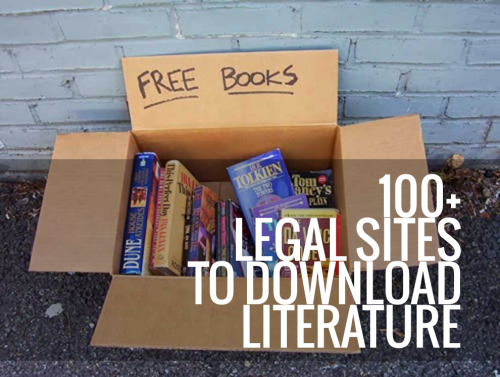
FAMOUS AUTHORS
Classic Bookshelf: This site has put classic novels online, from Charles Dickens to Charlotte Bronte.
The Online Books Page: The University of Pennsylvania hosts this book search and database.
Project Gutenberg: This famous site has over 27,000 free books online.
Page by Page Books: Find books by Sir Arthur Conan Doyle and H.G. Wells, as well as speeches from George W. Bush on this site.
Classic Book Library: Genres here include historical fiction, history, science fiction, mystery, romance and children’s literature, but they’re all classics.
Classic Reader: Here you can read Shakespeare, young adult fiction and more.
Read Print: From George Orwell to Alexandre Dumas to George Eliot to Charles Darwin, this online library is stocked with the best classics.
Planet eBook: Download free classic literature titles here, from Dostoevsky to D.H. Lawrence to Joseph Conrad.
The Spectator Project: Montclair State University’s project features full-text, online versions of The Spectator and The Tatler.
Bibliomania: This site has more than 2,000 classic texts, plus study guides and reference books.
Online Library of Literature: Find full and unabridged texts of classic literature, including the Bronte sisters, Mark Twain and more.
Bartleby: Bartleby has much more than just the classics, but its collection of anthologies and other important novels made it famous.
Fiction.us: Fiction.us has a huge selection of novels, including works by Lewis Carroll, Willa Cather, Sherwood Anderson, Flaubert, George Eliot, F. Scott Fitzgerald and others.
Free Classic Literature: Find British authors like Shakespeare and Sir Arthur Conan Doyle, plus other authors like Jules Verne, Mark Twain, and more.
TEXTBOOKS
Textbook Revolution: Find biology, business, engineering, mathematics and world history textbooks here.
Wikibooks: From cookbooks to the computing department, find instructional and educational materials here.
KnowThis Free Online Textbooks: Get directed to stats textbooks and more.
Online Medical Textbooks: Find books about plastic surgery, anatomy and more here.
Online Science and Math Textbooks: Access biochemistry, chemistry, aeronautics, medical manuals and other textbooks here.
MIT Open Courseware Supplemental Resources: Find free videos, textbooks and more on the subjects of mechanical engineering, mathematics, chemistry and more.
Flat World Knowledge: This innovative site has created an open college textbooks platform that will launch in January 2009.
Free Business Textbooks: Find free books to go along with accounting, economics and other business classes.
Light and Matter: Here you can access open source physics textbooks.
eMedicine: This project from WebMD is continuously updated and has articles and references on surgery, pediatrics and more.
MATH AND SCIENCE
FullBooks.com: This site has “thousands of full-text free books,” including a large amount of scientific essays and books.
Free online textbooks, lecture notes, tutorials and videos on mathematics: NYU links to several free resources for math students.
Online Mathematics Texts: Here you can find online textbooks likeElementary Linear Algebra and Complex Variables.
Science and Engineering Books for free download: These books range in topics from nanotechnology to compressible flow.
FreeScience.info: Find over 1800 math, engineering and science books here.
Free Tech Books: Computer programmers and computer science enthusiasts can find helpful books here.
CHILDREN’S BOOKS
byGosh: Find free illustrated children’s books and stories here.
Munseys: Munseys has nearly 2,000 children’s titles, plus books about religion, biographies and more.
International Children’s Digital Library: Find award-winning books and search by categories like age group, make believe books, true books or picture books.
Lookybook: Access children’s picture books here.
PHILOSOPHY AND RELIGION
Bored.com: Bored.com has music ebooks, cooking ebooks, and over 150 philosophy titles and over 1,000 religion titles.
Ideology.us: Here you’ll find works by Rene Descartes, Sigmund Freud, Karl Marx, David Hume and others.
Free Books on Yoga, Religion and Philosophy: Recent uploads to this site include Practical Lessons in Yoga and Philosophy of Dreams.
The Sociology of Religion: Read this book by Max Weber, here.
Religion eBooks: Read books about the Bible, Christian books, and more.
PLAYS
ReadBookOnline.net: Here you can read plays by Chekhov, Thomas Hardy, Ben Jonson, Shakespeare, Edgar Allan Poe and others.
Plays: Read Pygmalion, Uncle Vanya or The Playboy of the Western World here.
The Complete Works of William Shakespeare: MIT has made available all of Shakespeare’s comedies, tragedies, and histories.
Plays Online: This site catalogs “all the plays [they] know about that are available in full text versions online for free.”
ProPlay: This site has children’s plays, comedies, dramas and musicals.
MODERN FICTION, FANTASY AND ROMANCE
Public Bookshelf: Find romance novels, mysteries and more.
The Internet Book Database of Fiction: This forum features fantasy and graphic novels, anime, J.K. Rowling and more.
Free Online Novels: Here you can find Christian novels, fantasy and graphic novels, adventure books, horror books and more.
Foxglove: This British site has free novels, satire and short stories.
Baen Free Library: Find books by Scott Gier, Keith Laumer and others.
The Road to Romance: This website has books by Patricia Cornwell and other romance novelists.
Get Free Ebooks: This site’s largest collection includes fiction books.
John T. Cullen: Read short stories from John T. Cullen here.
SF and Fantasy Books Online: Books here include Arabian Nights,Aesop’s Fables and more.
Free Novels Online and Free Online Cyber-Books: This list contains mostly fantasy books.
FOREIGN LANGUAGE
Project Laurens Jz Coster: Find Dutch literature here.
ATHENA Textes Francais: Search by author’s name, French books, or books written by other authors but translated into French.
Liber Liber: Download Italian books here. Browse by author, title, or subject.
Biblioteca romaneasca: Find Romanian books on this site.
Bibliolteca Virtual Miguel de Cervantes: Look up authors to find a catalog of their available works on this Spanish site.
KEIMENA: This page is entirely in Greek, but if you’re looking for modern Greek literature, this is the place to access books online.
Proyecto Cervantes: Texas A&M’s Proyecto Cervantes has cataloged Cervantes’ work online.
Corpus Scriptorum Latinorum: Access many Latin texts here.
Project Runeberg: Find Scandinavian literature online here.
Italian Women Writers: This site provides information about Italian women authors and features full-text titles too.
Biblioteca Valenciana: Register to use this database of Catalan and Valencian books.
Ketab Farsi: Access literature and publications in Farsi from this site.
Afghanistan Digital Library: Powered by NYU, the Afghanistan Digital Library has works published between 1870 and 1930.
CELT: CELT stands for “the Corpus of Electronic Texts” features important historical literature and documents.
Projekt Gutenberg-DE: This easy-to-use database of German language texts lets you search by genres and author.
HISTORY AND CULTURE
LibriVox: LibriVox has a good selection of historical fiction.
The Perseus Project: Tufts’ Perseus Digital Library features titles from Ancient Rome and Greece, published in English and original languages.
Access Genealogy: Find literature about Native American history, the Scotch-Irish immigration in the 19th and 20th centuries, and more.
Free History Books: This collection features U.S. history books, including works by Paul Jennings, Sarah Morgan Dawson, Josiah Quincy and others.
Most Popular History Books: Free titles include Seven Days and Seven Nights by Alexander Szegedy and Autobiography of a Female Slave by Martha G. Browne.
RARE BOOKS
Questia: Questia has 5,000 books available for free, including rare books and classics.
ARTS AND ENTERTAINMENT
Books-On-Line: This large collection includes movie scripts, newer works, cookbooks and more.
Chest of Books: This site has a wide range of free books, including gardening and cooking books, home improvement books, craft and hobby books, art books and more.
Free e-Books: Find titles related to beauty and fashion, games, health, drama and more.
2020ok: Categories here include art, graphic design, performing arts, ethnic and national, careers, business and a lot more.
Free Art Books: Find artist books and art books in PDF format here.
Free Web design books: OnlineComputerBooks.com directs you to free web design books.
Free Music Books: Find sheet music, lyrics and books about music here.
Free Fashion Books: Costume and fashion books are linked to the Google Books page.
MYSTERY
MysteryNet: Read free short mystery stories on this site.
TopMystery.com: Read books by Edgar Allan Poe, Sir Arthur Conan Doyle, GK Chesterton and other mystery writers here.
Mystery Books: Read books by Sue Grafton and others.
POETRY
The Literature Network: This site features forums, a copy of The King James Bible, and over 3,000 short stories and poems.
Poetry: This list includes “The Raven,” “O Captain! My Captain!” and “The Ballad of Bonnie and Clyde.”
Poem Hunter: Find free poems, lyrics and quotations on this site.
Famous Poetry Online: Read limericks, love poetry, and poems by Robert Browning, Emily Dickinson, John Donne, Lord Byron and others.
Google Poetry: Google Books has a large selection of poetry, fromThe Canterbury Tales to Beowulf to Walt Whitman.
QuotesandPoem.com: Read poems by Maya Angelou, William Blake, Sylvia Plath and more.
CompleteClassics.com: Rudyard Kipling, Allen Ginsberg and Alfred Lord Tennyson are all featured here.
PinkPoem.com: On this site, you can download free poetry ebooks.
MISC
Banned Books: Here you can follow links of banned books to their full text online.
World eBook Library: This monstrous collection includes classics, encyclopedias, children’s books and a lot more.
DailyLit: DailyLit has everything from Moby Dick to the recent phenomenon, Skinny Bitch.
A Celebration of Women Writers: The University of Pennsylvania’s page for women writers includes Newbery winners.
Free Online Novels: These novels are fully online and range from romance to religious fiction to historical fiction.
ManyBooks.net: Download mysteries and other books for your iPhone or eBook reader here.
Authorama: Books here are pulled from Google Books and more. You’ll find history books, novels and more.
Prize-winning books online: Use this directory to connect to full-text copies of Newbery winners, Nobel Prize winners and Pulitzer winners.
Tentang #banjirJakarta, ada yang melihat kesalahan pada "si Miskin" karena tinggal dibantaran-bantaran kali dan kerap membuang sampah dialiran sungai, disisi lain ada yang melihat kesalahan pada "si Kaya" dalam hal ini Developer kawasan rumah Mewah yang dalam pembangunannya menggunakan lahan-lahan serap air.
Hmm gimana kalau kita salahkan Pemerintah saja? Pemerintah yang kurang tegas dengan kebijakannya, kerap memberi izin pembangunan pada Developer karena ada "pelicin" walaupun mengabaikan Tata Ruang Kota, dan Pemerintah juga yang tidak bijak dengan masyarakat bawah di bantaran kali, mereka ini difasilitasi listrik loh, bahkan ada juga MCK sendiri, kemudian setiap kali melakukan "pembebasan lahan" pasti terbata-bata dalam mencairkan ganti rugi..
Ribet kan jadi Penguasa.... :-?
